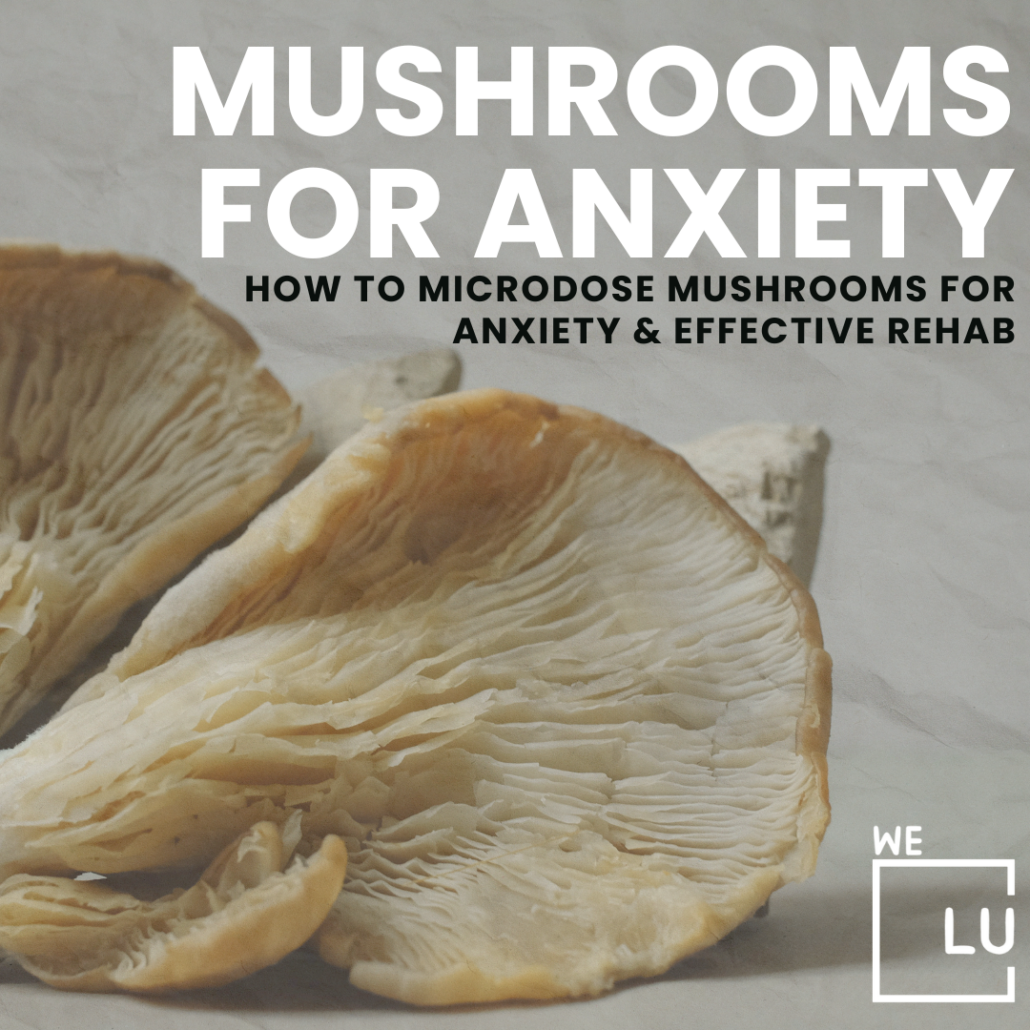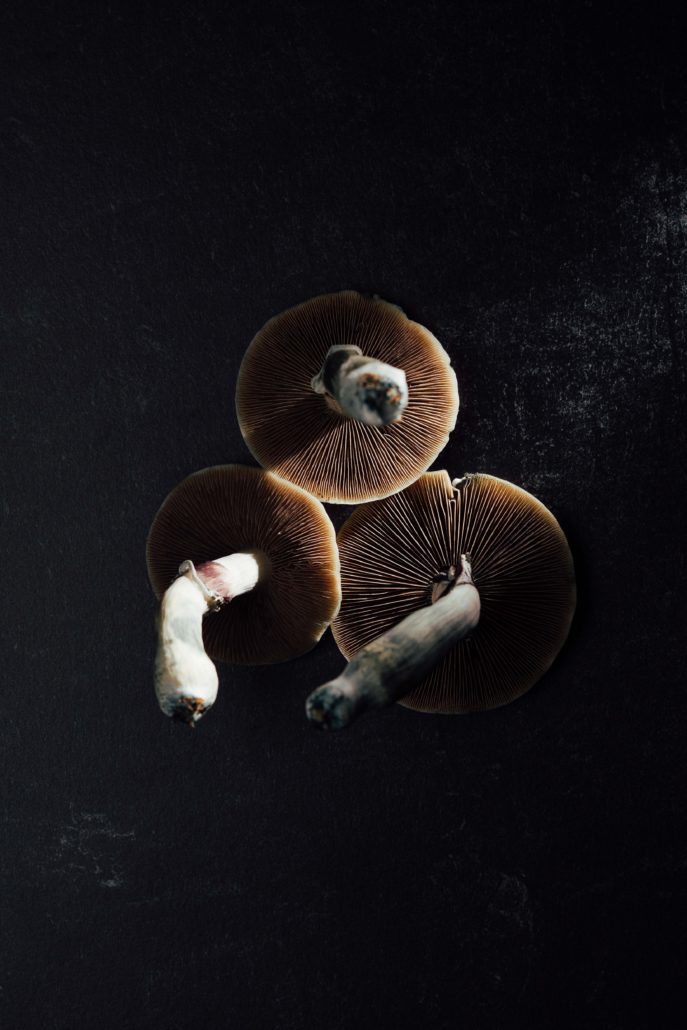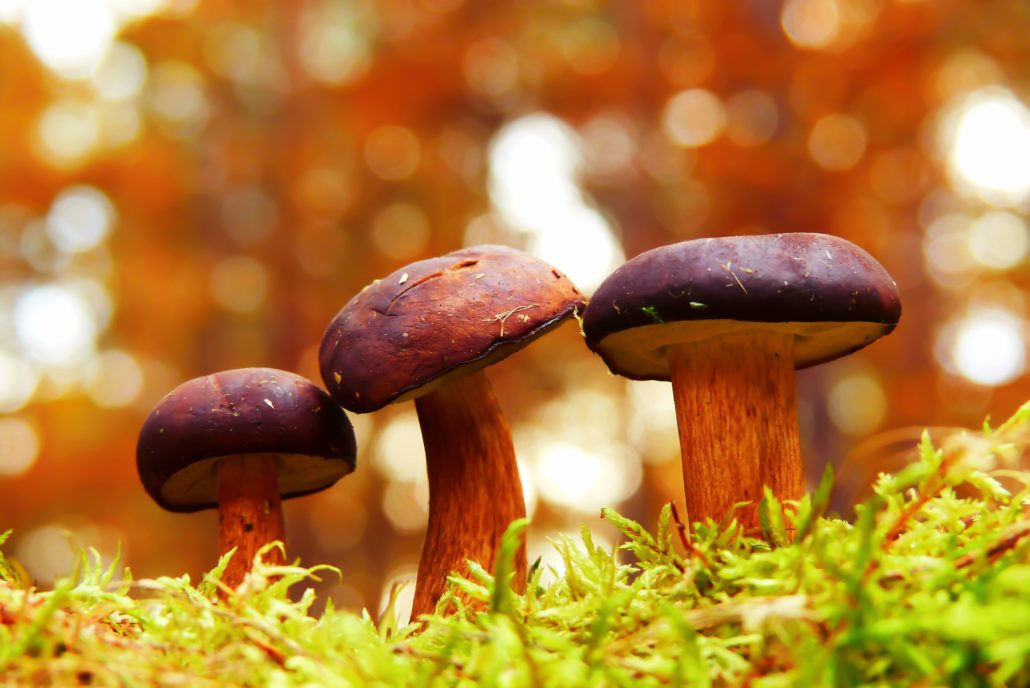How to Microdose Mushrooms for Anxiety and Depression?
Psychedelic drugs have garnered significant attention among medical professionals and individuals due to their increasingly recognized potential to bring about enduring improvements in the mental health of individuals contending with conditions like treatment-resistant depression. The practice of microdosing with substances like LSD or psilocybin involves consuming a minute fraction of the standard dosage—typically a sub-perceptual dose—far below what is required for a full-blown “trip” or hallucinogenic experience.
There is a prevailing belief that microdosing psychedelics can elevate mood, boost creativity, enhance focus, increase productivity, and foster empathy toward others. However, there’s a possibility that these perceived benefits stem from an “expectancy effect.” This implies that individuals who regularly consume a daily pill in anticipation of feeling happier and sharper may experience those sensations attributed to the pill itself, regardless of its actual contents.
Understanding Microdosing
The definition of microdosing with psychedelic drugs lacks a universally recognized standard, making consistent research challenging. It typically refers to approximately 1/5 to 1/20 of a recreational dose, such as a moderate psilocybin dose of 2 to 3 grams of dried mushrooms, where a microdose is around 0.3 grams. However, the variability in the potency of mushrooms due to lack of regulation poses a challenge. Similarly, LSD, often in liquid form or embedded into paper, remains invisible, tasteless, and odorless, making accurate dosage estimation difficult.
Due to the current illegal status and absence of regulation, determining the precise dosage of LSD or psilocybin is challenging unless acquired from a highly reliable source. The potent nature and long-lasting effects of LSD underscore the necessity of precise dosage. Moreover, ongoing use may lead to physiological tolerance, potentially resulting in diminished benefits at the same dosage level.
Safety Concerns of Microdosing
Limited knowledge about safety stems from restricted research due to the War on Drugs, which halted much psychedelic investigation since the late 1960s. Recently, research into psychedelics has revived, with various medical centers conducting studies. Psilocybin, generally considered safe in low doses and historically used by indigenous communities, can be dangerous if taken in excessive amounts, leading to distressing or traumatic experiences.
Psilocybin, derived from nearly 200 fungi species, requires mushrooms from a trusted source. Mistaking poisonous mushrooms for psilocybin-containing ones poses severe health risks, potentially causing liver damage, severe illness, or fatality due to toxic varieties often resembling harmless species in nature.
Legalization of Psychedelics
Foreseen by experts, the full legalization of specific psychedelics like psilocybin and MDMA (ecstasy) for supervised medical use could be on the horizon in the next few years. Advocates and public health specialists believe these substances might be rendered safer through decriminalization and regulated production. Local decriminalization efforts in places like Oregon and various cities nationwide are underway.
The Potential for Safety and Concerns
Proponents of decriminalization anticipate increased safety measures and broader access, potentially eliminating the need for medical prescriptions or supervision. However, skeptics worry about uncontrolled access, particularly its effects on those with mental health conditions or the possible onset of disorders like psychosis in vulnerable populations.
Safety Caution in Mental Illness
The prudent use of psychedelic drugs, if at all, is critical, especially for individuals with severe mental conditions such as schizophrenia or bipolar disorder. Typically, these patients are excluded from psychedelic studies due to safety concerns.
Debating the Efficacy of Microdosing
The effectiveness of microdosing psychedelics remains a topic of contention. While some studies highlight substantial benefits from microdosing, others present less convincing evidence. For example, one study observed 953 psilocybin microdosers and 180 non-dosers, reporting moderate mood and mental health improvements over 30 days. Yet, a randomized controlled trial involving 34 patients yielded inconclusive evidence, raising questions about the actual therapeutic benefits of low-dose psilocybin mushrooms. This discrepancy suggests that perceived effects of psychedelics at sub-perceptual doses may primarily stem from expectancy rather than providing therapeutic advantages, hinting at a possible need for higher dosages to achieve desired outcomes.

Skip To:
Learn More:
- Studies Find That A Dose of Psilocybin May Ease Symptoms of Anxiety and Depression
- Mushrooms for Depression: Can Psilocybin Alleviate Depressive Symptoms?
- Mushrooms for Anxiety & The Potential Benefits of Psilocybin
- Do Crystals For Depression Work?
- Depression and ADHD: What’s the Link?
- Autism and Depression Connection, Diagnosis & Treatment
- Signs of Depression in Men, Causes, & What to Know
- Rehab for Depression & Anxiety Treatment
- What is the Best SSRI for Anxiety?
- Social Anxiety Disorder
- Grounding Techniques for Anxiety Attacks
- Mental Health Poems That Are Powerful and Healing
- Short-Term Disability Mental Health
Get Help. Get Better. Get Your Life Back.
Searching for Accredited Dual Diagnosis Mental Health Centers Near You?
Even if therapy failed previously, or are in the middle of a difficult crisis, we stand ready to support you. Our trusted behavioral health specialists will not give up on you. When you feel ready or just want someone to speak to about counseling alternatives to change your life call us. Even if we cannot assist you, we will lead you to wherever you can get support. There is no obligation. Call our hotline today.
FREE 24/7 Dual Diagnosis Mental Health Services Hotline
Benefits of Microdosing Mushrooms
When it comes to psychedelics, microdosing is taking drugs in doses that are insufficient to hurt daily life. Depending on the dosage, it could be taken three to five times weekly.
According to the 2021 Global Drug Survey (GDS), 1 in 4 psychedelic users reported microdosing on LSD or psilocybin mushrooms within the previous year. The poll also discovered that around one-third of those who used psychedelics microdose another psychedelic substance, even though these two chemicals are the most frequently used for microdosing.
A study addressed a challenge in this research area: the difficulty defining the dosage, despite most individuals perceiving a microdose as highly minimal.
Regarding the frequency of microdosing mushrooms, the study stated that the appropriate microdose could differ depending on the individual and circumstances. “When individuals determine a microdose, they aim to maintain normal cognitive functioning—being able to fulfill their work or other responsibilities without experiencing adverse effects,” the study explained.
As part of the recent study, participants underwent numerous assessments related to mood and mental health, documenting their recent use of microdosing psychedelic mushrooms and outlining various observed changes.

End the Emotional Pain. Get Your Life Back.
Feeling Depressed, Anxious or Struggling with Mental Health Illness? Get Safe Comfortable Mental Health Dual Diagnosis High-Quality Therapy From Counselors That Care. Begin Your Recovery Now.
Hotline (855) 940-6125Possible Psychomotor Benefits of Microdosing Magic Mushrooms
Researchers used a smartphone finger-tapping test to measure psychomotor symptoms of neurodegenerative illnesses like Parkinson’s disease and Multiple Sclerosis in addition to examining mental health effects.
This tapping test was used to assess improvements in psychomotor performance in individuals 55 years of age or older who microdose mushrooms. The effects of “stacking,” or mixing psilocybin and a non-psychedelic substance, were also examined by researchers.
The researchers discovered that combining psilocybin with lion’s mane, a non-psychedelic fungus, and niacin, a B vitamin, had no impact on the changes in mood or mental health. However, the psychomotor performance of older people who microdose mushrooms and coupled psilocybin with both of these drugs was more likely to be enhanced.
Positive Results, But Research is Observational
A segment of participants from a previous extensive study conducted by the same researchers, as published in November 2021 in Nature-Scientific Reports, was utilized in the new study.
The earlier research found that individuals who engaged in microdosing either psilocybin (microdose mushrooms) or LSD exhibited lower levels of anxiety, depression, and stress in comparison to those who did not.
Furthermore, a smaller study conducted in 2019 revealed that individuals using modest amounts of psychedelics encountered fewer symptoms related to depression and stress, as well as reduced distractibility. However, the study did not employ non-microdosers as a control group.
It’s important to note that while the new study is the most extensive one conducted so far, it remains observational and not a randomized controlled trial (RCT). Consequently, researchers faced challenges in adequately controlling variables like age, gender, baseline mental health, and treatment type that could influence the outcomes.
These variables might also influence the varied reactions of individuals to psilocybin.
The diversity of participants entering these trials is a critical variable. Some individuals may manage depression well but struggle significantly with anxiety, and vice versa. Consequently, the impact of a microdose could significantly differ for someone with high anxiety levels compared to someone experiencing high levels of depression.
First-class Facilities & Amenities
World-class High-Quality Mental Health Services & Behavioral Health Substance Abuse Treatment
Rehab Centers TourRenowned Mental Health Centers. Serene Private Facilities. Inpatient Rehab Programs Vary.
Mental Health Helpline (855) 940-6125Proven recovery success experience, backed by a Team w/ History of:
15+
Years of Unified Experience
100s
5-Star Reviews Across Our Centers
10K
Recovery Successes
- Comprehensive Dual-Diagnosis Treatment
- Complimentary Family & Alumni Programs
- Coaching, Recovery & Development Events
- Comfortable Onsite Medical Detox Center
Results May Vary Based on the Expectancy
The trial’s design challenged the researchers as they couldn’t control for the “expectancy” effect. This phenomenon occurs when subjects anticipate benefits from psilocybin due to their awareness. It’s a common issue not only in psychedelic research but also in studies where participants are aware of the medication they receive, like in acupuncture or ice therapy studies.
Anticipating the effects of a substance can be powerful. However, the study’s lack of consideration for anticipation during its design doesn’t automatically invalidate its findings.
More Rigorous Research Needed on Microdosing Mushrooms
Because psilocybin, LSD, and other psychedelics are now prohibited in the United States by federal law, conducting psychedelic research has historically been difficult.
The Food and Drug Administration (FDA) has recently given psychedelics “breakthrough therapy” status. It is currently promoting scientific study, even though previous clinical trials on psychedelics have been contested in the past.
Even though psychedelic medications like psilocybin may have therapeutic value, the adverse risks are not fully known, necessitating further thorough investigation.
Long-term usage of psilocybin mushrooms raises the possibility of heart valvulopathy or valve damage. Psilocybin, when consumed, is broken down by the liver into the pharmacological substance psilocin, which binds to serotonin receptors in the heart.

Stigma Around Psychedelics
Despite the positive methodology and findings in the new study, there’s a continued need for scientists to promote the beneficial effects of certain psychedelic substances. Psilocybin and LSD, while possessing lower addiction risks compared to legal substances like tobacco and alcohol, still grapple with negative perceptions.
Despite this, psychedelics are considered relatively safe for microdosing, with low risks of overdose and addiction. Psilocybin, known for its low toxicity and rare fatalities, is being explored by scientists as a potential treatment option. The narrative surrounding substances indicates their potential for both harm and profound healing.
How to Microdose Mushrooms for Migraines?
A two-beer buzz is frequently used to describe the felt effects of the tiny doses of psychedelics used to treat cluster headaches. However, they still have a much smaller impact than the results of a recreational dose. Fewer side effects than those associated with their prescribed medications may also be experienced by patients. A dose for clusters may give the patient slightly brighter blue skies for a few hours after taking it.
There is no question that psychedelics can treat cluster headaches. However, there is one drawback: to get help, patients must break the law. Research into psychedelic remedies for cluster headaches is hindered by regulations because of the legal status of psychedelic drugs. Nevertheless, the Drug Enforcement Agency (DEA) appears to be moving in the opposite direction of legalization, proposing to add five new psychedelic molecules to Schedule I of the Controlled Substances Act on January 14, 2022, despite the evidence that psychedelics may be able to treat cluster headaches and a variety of other untreatable medical conditions.
How to Microdose Mushrooms for Fibromyalgia
Fibromyalgia’s mystery is being dispelled by new research, which is beginning to suggest that it is an inflammatory autoimmune disorder. Psilocybin for fibromyalgia pain control might be a potent weapon in your management toolbox. Psilocybin is one of the incredibly few medications with the capacity to reduce neuroinflammation, a condition that is exceedingly difficult to treat.
The medical profession has a history of mistreating and demonizing the fibromyalgia population. Getting concrete evidence that the disease is not just “genuine” but also visible on testing is a relief.
Sadly, recognizing your enemy does not mean the battle is over. Neuroinflammation, the inflammation linked to fibromyalgia, is resistant to our existing autoimmune therapies.
World-class, Accredited, 5-Star Reviewed, Effective Mental Health Dual Diagnosis Programs. Complete Integrated Inpatient Rehab with Free Post Discharge Therapy Planning.
CALL (855) 940-6125End the Emotional Pain Rollercoaster. Gain Stability & Happiness Through Recovery Treatment. Start Mental Health Counseling Today. Get Free No-obligation Guidance by Behaviroal Health Specialists Who Understand Mental Health Recovery.
We Level Up Dual Diagnosis Treatment
The exact definition of dual diagnosis (also referred to as co-occurring disorders) can differ between institutions. However, it is generally described as the specific treatment of someone who has been diagnosed with a substance use disorder and a mental health disorder at the same time.
Treating dual-diagnosis clients is a critical aspect of our inpatient treatment experience because co-occurring disorders are strongly correlated with instances of substance abuse. Creating a treatment plan that addresses the physical aspects of withdrawal, the psychological connection with drug use, and managing underlying mental health disorders is part of setting clients up for success.
A thorough mental health analysis identifies possibilities for treatment. Meeting with mental health counselors and medical care providers means access to behavioral therapy and medication treatment.
At our dual diagnosis treatment center, We Level Up can implement the highest quality of care. We recognize the fragile complexities of how mental and substance abuse disorders can influence others and sometimes result in a vicious cycle of addiction. That’s why we offer specialized treatment in dual-diagnosis cases to provide the most excellent chance of true healing and long-lasting recovery.
It can be challenging to accept that you may be living with a mental illness, but once it is properly diagnosed and treated, treating the presenting case of substance abuse can be magnitudes easier. Only a properly trained medical professional can diagnose these underlying conditions. If you believe you are suffering from a disorder alongside addiction, we urge you to seek a qualified treatment center to begin your journey to recovery. Call We Level Up today.
Experience Transformative Recovery at the We Level Up Treatment Center.
See our authentic success stories. Get inspired. Get the help you deserve.



Start a New Life
Begin with a free call to a behavioral health treatment advisor. Learn more about our dual-diagnosis programs. The We Level Up treatment center network delivers recovery programs that vary by each treatment facility. Call to learn more.
- Personalized Care
- Caring Accountable Staff
- World-class Amenities
- Licensed & Accredited
- Renowned w/ 5-Star Reviews
We’ll Call You
Top 6 Non Addictive Anti-Anxiety Medications
Search We Level Up FL How to Microdose Mushrooms and Does It Have Benefits? Resources
Sources
- Lowe H, et al. (2021). The therapeutic potential of psilocybin.
https://www.ncbi.nlm.nih.gov/pmc/articles/PMC8156539/ How to Microdose Mushrooms, microdosing mushrooms-Related Articles - Psychedelic and dissociative drugs. (2023).
https://nida.nih.gov/research-topics/psychedelic-dissociative-drugs How to Microdose Mushrooms, microdosing mushrooms-Related Articles - Psilocybin. (2020).
https://www.dea.gov/sites/default/files/2020-06/Psilocybin-2020.pdf How to Microdose Mushrooms, microdosing mushrooms-Related Articles - Reynolds S. (2023). How psychedelic drugs may help with depression.
https://www.nih.gov/news-events/nih-research-matters/how-psychedelic-drugs-may-help-depression How to Microdose Mushrooms, microdosing mushrooms-Related Articles - Roseman L, et al. (2018). Increased amygdala responses to emotional faces after psilocybin for treatment-resistant depression.
https://www.sciencedirect.com/science/article/pii/S0028390817306391 How to Microdose Mushrooms, microdosing mushrooms-Related Articles - Ziff S, et al. (2022). Analysis of psilocybin-assisted therapy in medicine: A narrative review.
https://www.ncbi.nlm.nih.gov/pmc/articles/PMC8901083/ How to Microdose Mushrooms, microdosing mushrooms-Related Articles - Drug Fact Sheet: Psilocybin https://www.dea.gov/factsheets/psilocybin How to Microdose Mushrooms, microdosing mushrooms-Related Articles
- Agin-Liebes GI, Malone T, Yalch MM, et al. Long-term follow-up of psilocybin-assisted psychotherapy for psychiatric and existential distress in patients with life-threatening cancer. J Psychopharmacol 2020;34(2):155-166. How to Microdose Mushrooms, microdosing mushrooms-Related Articles
- Anderson BT, Danforth A, Daroff PR, et al. Psilocybin-assisted group therapy for demoralized older long-term AIDS survivor men: An open-label safety and feasibility pilot study. EClinicalMedicine 2020;27:100538. How to Microdose Mushrooms, microdosing mushrooms-Related Articles
- Anderson T, Petranker R, Christopher A, et al. Psychedelic microdosing benefits and challenges: an empirical codebook. Harm Reduct J 2019;16(1):43. How to Microdose Mushrooms, microdosing mushrooms-Related Articles





